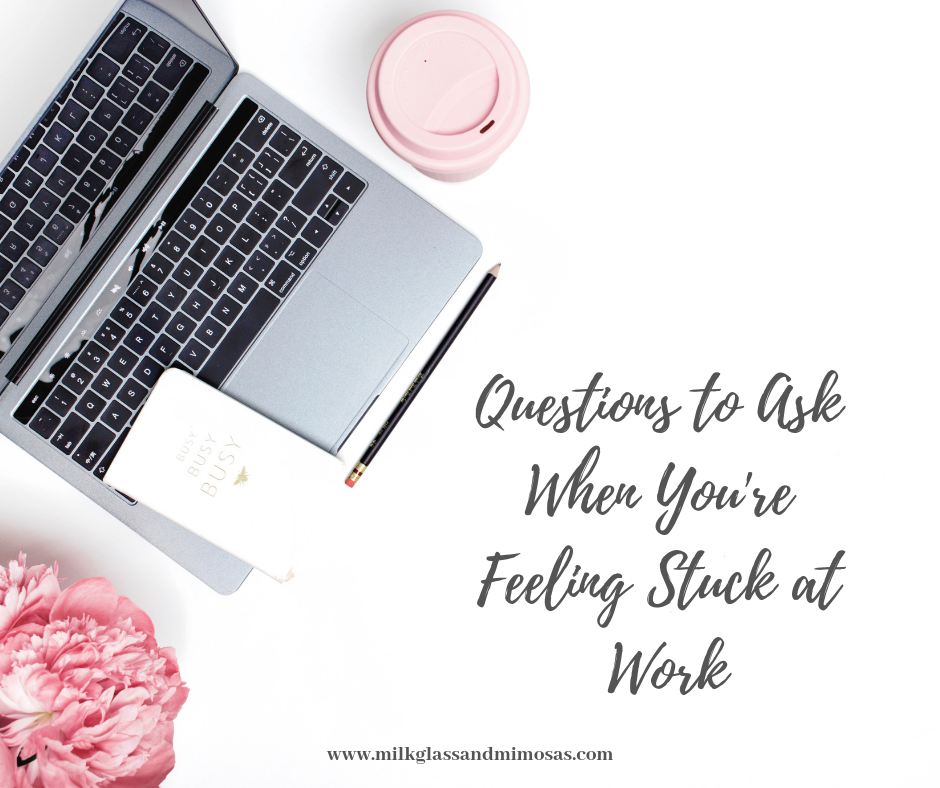Facing a Turning Point in Your Career

No matter where you are in your career, you will soon discover (if you haven’t already), that career paths often have various turning points.
At the beginning of your career, you might still be figuring out what you really want to be doing. This is where you’re learning about yourself as an employee, while discovering the ins and outs of a particular position and company.
As you start to develop in your career, you’ll start to see turning points when you need more of a challenge or when you want something different.
For some people, it’s easier to see these turning points coming. It’s like driving down a windy road where you just know the next curve is ahead. In these instances you may have more time to think about your course of action. Will you continue to follow this path or will you make a turn for something different?
For other people, it might be harder to see a crossroad is coming. In this case, it’s like driving up a hill that ends in a hidden “T” in the road. You might not see it from the bottom of the hill, but your next course of action must be to turn right or left.
I apologize for the terrible driving analogies, but you get my point. Like with driving, careers are hardly ever just a straight path forward. There will always be choices that need to be made and decisions could lead to new or better things.
What to Ask Yourself When You’re Feeling Stuck

Knowing that career growth means changes are inevitable and welcomed, there may come times in your work where you just feel stuck.
You might not necessarily be at a crossroads, but you feel like you just don’t have the same passion or drive that you once did. In these instances, there may be some easy solutions to finding your way out of the rut.
Here are some questions to ask yourself when you’re feeling stuck at work:
Why are you feeling stuck?
This question may seem obvious, but in a moment of feeling like you’re in a rut, it might not be top of mind.
The first step to getting “unstuck” is to identify the issue so you can take steps to address it.
Are you feeling overworked and underpaid? Do you not feel challenged or do you feel underutilized? Do you have a problem with your manager or coworkers?
There are a multitude of reasons of “why” you might be feeling stuck. Once you can answer the why, now you can take steps to solve it.
What actions have you taken to help solve this issue?
Of course, next step is to take action or to identify if you’ve already started to take action.
I think this question is super important because you cannot allow yourself to feel that hitting a roadblock at work is out of your control. There are always actions you can take to help solve the issue.
Whatever “why” you’ve identified, you should begin to right down a list of action steps you can take to help resolve your feelings of being stuck.
The next two questions may also help with taking action.
Who have you asked for help?
Unless you work for yourself (which kudos to you if you do!) there is most likely someone at work who you can ask for help.
First, your manager or supervisor is probably your most useful resource. The only exception to this would be if your manager is one of the reasons that you feel stuck.
If you feel comfortable talking to your manager, address with him or her your feelings of concern and ask them to help you build an action plan to get you out of your rut.
If you don’t feel comfortable talking to your manager, another good resource would be Human Resources, a trusted coworker or another manager who’s not your direct supervisor.
The key is to talk to someone you trust who will also push you to take action to find solutions to your issue.
Where can you go for more resources?
There are a plethora of resources available to help with career development and navigating different turning points in your career.
Your company may offer some resources that can help with personal or professional development. Again, you can ask your manager, HR or other trusted colleague.
You may also want to look into professional groups who often offer networking events, seminars, professional development and other resources.
Additionally, you can research local or online classes or courses if you are looking to build up a particular skill or area for career growth.
When is your deadline for solving this issue?
Lastly, it’s important to set a deadline for coming to a resolution to your issue. You never want to stay perpetually stuck at work, so giving yourself a deadline is the easiest way to stay on track.
Based on your action plan, you can decide how long you want to take to get out of your rut. Is it something that can be solved in a week, a month or year? Are you willing to invest a certain amount of time to solving the issue?
If you’ve identified the problem, taken actions, talked with trusted colleagues, found additional resources and still feel stuck, then the problem is probably long term. At this point, it’s time to decide if a career or job change is your next best solution.
Next Steps to Take When You’re Feeling Stuck at Work
If you’ve come to the conclusion that a career or job change is your next best solution when you’re feeling stuck at work, it is now time to come up with your next steps.
This could include identifying what type of change you’re looking for, how you plan to get there and how long you will give yourself to get there.
Much like the action steps above, also identifying someone to guide you in the process could be helpful.
If you still like what you’re doing but want more of a challenge, are there opportunities to take on more responsibility? Would this mean a promotional advancement within your company? Is there a possibility for relocation, either by department, office or location?
Does a change mean applying to new jobs outside your current company? If there’s little or no room for growth, do you want to move on in order to move up? Do you know other people in your field who could recommend you for a position?
There are so many great questions to ask yourself and so many possibilites once you decide that the next step to feel “unstuck” is to move up or move on.
Now is a great time to update your resume, start mobilizing your network and actively start searching for opportunities available to you.
Final Thoughts
It’s never okay to feel stuck in your career. There is always a reason why you’re feeling stuck and a solution to help you out of your rut. Sometimes it just takes asking a few questions to get you on your way.
By asking yourself why you’re feeling a certain way, determining what actions you’ve taken or will take to solve the issue, asking others for help, finding outside resources for help and giving yourself a deadline for solving the issue, you are well on your way out of your rut.
Sometimes, it just takes some simple questions to find simple answers. If you’re in more than just a rut and it’s time to move on in your career, you can also ask yourself similar questions to find your new path.
Have you ever felt stuck at work? What steps did you take to get you out of your rut? Let me know in the comments below.
I’ve been feeling stuck at work and in my career lately 🙁 I’ll have to start asking myself these questions and really figuring out what’s going on
I’m sorry to hear that, Rachel! I hope these questions will help you out of your rut!
Setting a deadline is an awesome idea! That gives me a completely new perspective on how to take on my next feeling of being stuck in a rut. I also love your tips on searching for resources and also asking for help!
Thanks, Kiara! I’m glad you found these tips helpful!
I really enjoyed the ‘final thoughts’ part. It’s easy to become stuck in a rutt in any part of life and feel scared to take the leap. Great postitive post! Btw I love a driving analogy!
Thanks, Amy! I’m glad you found this helpful and positive. And I’m glad you enjoyed the driving analogy 🙂